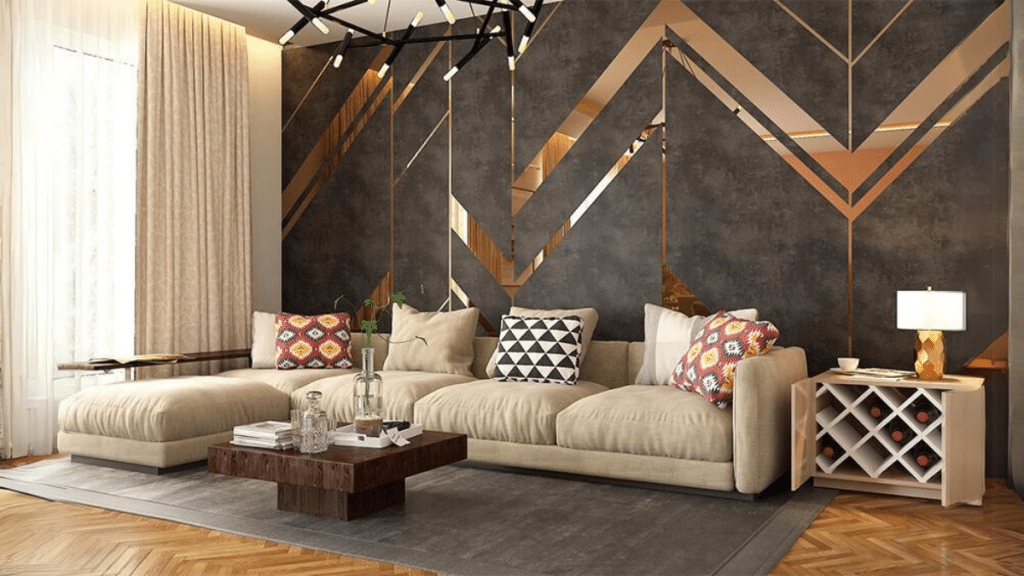Wood wall panels have been a staple in interior design for centuries, and their enduring popularity suggests that they are indeed a timeless addition to modern interiors. From classic wooden wainscoting to sleek, contemporary paneling, wood has the unique ability to seamlessly blend into a wide range of interior styles.
The Allure of Natural Beauty
One of the most compelling reasons why wood wall panels remain a coveted choice in modern interiors is their natural beauty. Wood’s inherent warmth, texture, and character have an enduring appeal that transcends trends and fads. Each wooden panel tells a story through its unique grain patterns, knots, and color variations, creating a connection to nature that resonates with many.
In modern interior design, where minimalism and simplicity often reign supreme, wood panels can introduce a sense of organic warmth that softens the starkness of contemporary aesthetics. Whether it’s the rustic charm of reclaimed wood or the clean lines of hardwood panels, the natural beauty of wood is a timeless asset that adds depth and richness to any space.
Versatility in Design
Wood on bathroom wall panels is incredibly versatile, making them an asset for modern interior designers. They can be customized to suit various design styles, from traditional to ultra-modern. For instance, classic wood wainscoting is perfect for creating a timeless, elegant atmosphere in formal spaces like dining rooms or libraries. In contrast, sleek, minimalist wood paneling can provide a sophisticated backdrop in a contemporary living room or office.
Moreover, wood panels are available in a wide range of finishes, stains, and colors, allowing for endless design possibilities. Whether you prefer the natural, earthy tones of oak or the deep richness of walnut, wood wall panels can be tailored to match your vision for a modern interior.
Durability and Longevity
One of the key reasons wood wall panels have stood the test of time is their exceptional durability and longevity. When properly maintained, wood can last for generations, making it a sustainable and cost-effective choice for modern interiors.
Modern manufacturing techniques have also enhanced the durability of wood wall panels. Engineered wood products, such as MDF (Medium Density Fiberboard) and plywood, offer improved stability and resistance to warping, ensuring that your wood panels remain in pristine condition even in fluctuating humidity levels. Additionally, many wood panels come with protective finishes that enhance their resistance to wear, stains, and moisture, making them suitable for high-traffic areas, including kitchens and bathrooms.
Acoustic Benefits
In today’s open-concept living spaces and offices, managing acoustics is essential for creating a comfortable and functional environment. Wood wall panels can play a crucial role in sound absorption and noise reduction, making them a practical choice for modern interiors.
The natural density of wood helps to absorb sound waves, reducing echoes and reverberations in a room. This acoustic benefit can enhance the overall comfort of a space, making it easier to focus, relax, or engage in conversation without being disturbed by unwanted noise. For this reason, wood wall panels are frequently used in offices, conference rooms, and even in home theaters to improve sound quality.
Shower Wall Panels are indeed a timeless addition to modern interiors. Their natural beauty, versatility, durability, acoustic benefits, and eco-friendly appeal make them a valuable investment for any design project. Whether you’re aiming for a classic, rustic look or a sleek, contemporary ambiance, wood wall panels have the adaptability to complement your vision while standing the test of time.
With their enduring charm and practical advantages, they continue to be a confident and reliable choice for those seeking to create interiors that are both timeless and contemporary. So, when contemplating your next interior design project, consider the enduring allure of wood wall panels—they may just be the perfect addition to elevate your modern space.
